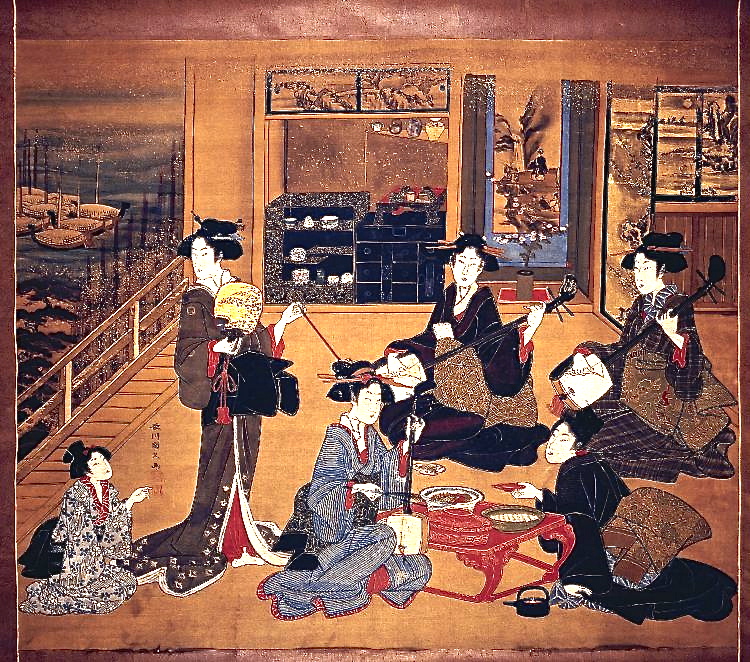
Music History: Japan
Despite all the connections and relationships between different cultures, there is still a big difference between the east and the west mostly between Western culture and Asian culture. While music is a place to share a universal language, there are many interesting differences in the way music developed since many centuries ago.
According to britannica.com there are: “three general concepts: (1) the sound ideal, (2) the structural ideal, and (3) the artistic ideal; but those three things are not clearly separate in any musical event”.
Ancient and Nara Period
The very first signs of music in Japan showed many similarities with China and Korea, so in a way, they influenced eachother very much, and at the time, there were few lines that separated them in terms of music. It wasn’t until the time when Japan was known as Yamato Japan due to the domination of the Yamato clan that Japan started to use instruments such as barrel drums which were played with sticks, while another figure is seated with a four or five-stringed board zither across his lap. Crotal bells (pellet or jingle bells)
The way japanese music evolved was that it managed to produce avery complete sound with few instruments.
8th Century Japan
It was at this time the history of Japan’s music starts to get clearer and a sens of the musical structure, instruments and composition can be understood.
In terms of the structure in Japanese compositions there was a clear difference from Western music, and that is the jo-ha-kyū, this is a three part sturcture which Japanese music followed. First, an introducction, then scatterings and finally, rushing towards. The interesting thing about this, is that all three parts were different from each other, as opposed to the western structure of recapitulation.
Edo, Meiji And World Wars
Everyone has some sense of what the Edo period was in Japan, even if you don’t know it. The Edo period was the era of the Samurai and shortly after Ninjas, which have been used in many forms of art, stories and games.
There is also a type of music that comes to mind which often includes the “shamisen” and the “shakuhachi”, the first being strings and the second a type of flute. There was also a lot of use of drums, called “taiko”.
Before the second world war, Japan was very interested in their traditions and identity.
“In the writings and musical works of the composers, Japanese-style composition is seen as an act of seeking and creating a Japanese identity in an international context”
LASSE LEHTONEN
After that, the modernization of Japan came with European and American influences, but Japan managed to preserve its tradition and essence; the result being, new and fresh ideas for their music.
Modern Period

It’s actually interesting to go on youtube for example and search for japanese artists, because while many of them still perform very traditional folk music, the way they’ve incorporated other genres is very interesting, genres such as Jazz, Rock, Hip Hop and Pop. In a way Japanese music manages to be extraordinary most of the times in terms of the performance and composition.
One of these great artists was Ryo Fukui, a self-taught Jazz pianist. While he is not one of the most famous he certainly brought a lot of new inspirations to jazz, however it did not reached its full potential.
Thelonious Monk taught us the beauty of improvisation. Louis Armstrong helped us find fun in swing. Duke Ellington showed us the wonder and joy to be had with a big orchestra. Ryo Fukui had all the material to make a similar impression on the world of jazz with the modal masterpiece that is 1976’s Scenery, but among some of music’s biggest injustices, the lack of a global stage for musicians of Fukui’s ilk is one of the most unfortunate. When listening to Scenery, it’s hard not to think about the countless other potential works of art that the Western musical zeitgeist has failed to account for.
Jazz Izzin
It’s up to you to explore a bit more in the area that you prefer, but there is no doubt that Japan is one of the most interesting in terms of music.
